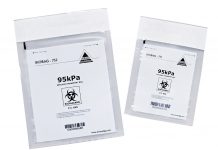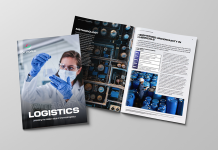Blaž Kop, of chemical labelling firm Loftware, examines the legislation’s implications for the global supply chain.
As the chemical industry moved into 2024, the outlook was significantly more positive compared to the years prior. With rising demand, digital innovation, and an increased focus on a sustainability agenda, the industry expects substantial growth. However, a raft of new regulations impacting various industries are making organisations rethink their supply chain processes and systems.
One raft of regulation updates affecting companies in the chemical industry relate to the European Classification, Labelling, and Packaging (CLP) Legislative Act.
The EU CLP updates, which align with the internationally recognised Globally Harmonized System of Classification and Labelling of Chemicals (GHS), are intended to enhance label readability, consumer safety, and transparency, and will start coming into effect as soon as 2025.
These updates also aim to clarify the rules on labelling chemical substances to different forms of trade (i.e. online trade or trade-in refill products), promote the circularity of the chemical products, make labels clearer and easier to understand (including digital labelling), and ensure a high level of protection against chemical hazards.
Although this is an EU specific regulation, it will affect companies worldwide as they can’t ship products into the EU if they don’t meet the new requirements. For companies to ensure compliance, a modern cloud-based labelling solution will be a key tool to manage this efficiently.
Cloud-based automation is key to compliance
Meeting all the updated EU CLP requirements is a significant challenge for organisations. Many companies are still relying on outdated tools that aren’t specifically designed for creating and printing labels.
As a result, compliance without manual oversight is a very difficult task. Others attempt to meet complex chemical labelling requirements by combining multiple, disparate, and legacy solutions. Unfortunately, these methods often lead to labelling errors and delays, resulting in substantial fines and business disruptions. A single centralised cloud labelling solution can assist with these issues and help firms meet EU CLP requirements.
The importance of cloud automation and integration should not be underestimated. Cloud technology can assist businesses in creating accurate labels to meet these and other regulatory requirements in every region they are active in.
This process reduces the possibility of firms mislabelling their products and the chance of being penalised by regulatory bodies, which in turn would hinder business reputation. Product identification can provide businesses with several challenges and integrating labelling directly with data sources provides them with consistency and accuracy.
Furthermore, by enabling checks in real-time, these technologies can automatically identify non-compliant elements or labelling errors – helping firms be more cost effective and save valuable time.
End-to-end traceability
More and more chemical manufacturers are beginning to invest in cloud-based solutions that can provide end-to-end traceability. This is vital in today’s business landscape which is complex and interconnected. For chemical companies, end-to-end traceability assists with operational efficiency, risk mitigation, and brand reputation.
With the many dangers that are involved in highly regulated industries like the chemical space, having the ability to quickly identify an issue and present a resolution is vital. Organisations using a cloud solution can locate products for recalls more efficiently, pinpointing exactly where the problem lies in the supply chain far quicker than they could before.
Applying this type of technology offers firms many benefits, such as minimising errors, ensuring compliance, reducing financial implications, removing other knock-on financial implications, and helping to ensure consumer safety.
While regulations are increasing year on year for many sectors including the chemical industry, so are the demands for businesses to align their ESG practices. The updated CLP regulation is part of a wider EU chemicals strategy, aiming to produce a more sustainable environment.
Cloud solutions are becoming incredibly important for businesses meeting sustainability demands, particularly in sectors like the chemical industry. As chemicals progress to the final product, companies closely monitor various factors such as raw commodity costs, transportation fees, and logistics expenses, all of which ultimately affect their bottom lines.
This complexity highlights the need for digital transformation and cloud labelling to help balance customer needs and profitability with ESG regulatory requirements.
The future lies in the Cloud
By leveraging cloud technologies, chemical manufacturers can ensure compliance, mitigate risks, and build consumer trust through transparent and auditable supply chain practices.
The integration of automation via these cloud solutions further bolsters their effectiveness, enabling precise and compliant labelling, efficient product recalls, and real-time error detection. Growing regulatory demands, including the EU CLP updates, highlight the critical need for chemical companies to adopt these advanced solutions.










